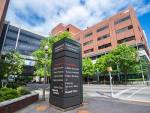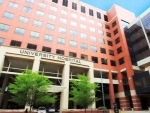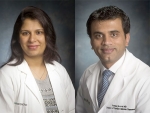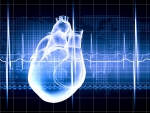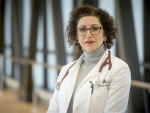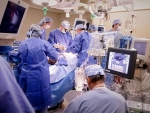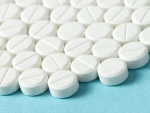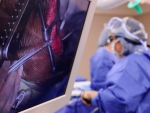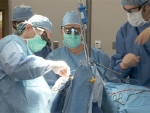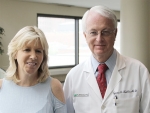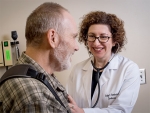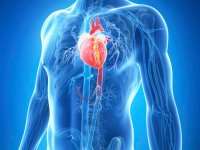Displaying items by tag: division of cardiology
Tagged under
- release
- uab medicine
- uab hospital
- department of obstetrics and gynecology
- department of medicine
- division of clinical immunology and rheumatology
- department of physical medicine and rehabilitation
- division of otolaryngology
- division of cardiovascular disease
- division of cardiology
- division of cardiothoracic surgery
- department of surgery
- division of gerontology geriatrics and palliative care
- division of endocrinology diabetes and metabolism
- division of pulmonary allergy and critical care medicine
- oneal comprehensive cancer center
- department of neurology
- department of neurosurgery
- division of gastrointestinal sugery
New wearable health monitoring devices can help you stay informed, but should they be relied on heavily?
Tagged under
UAB Hospital houses a 21-bed cardiac care unit specializing in procedures such as heart transplants and cardiopulmonary rehabilitation.
Tagged under
The grant will initially fund two fellowship positions for postdoctoral fellows (basic or clinical) wishing to train in the area of heart failure research.
Tagged under
According to the National Heart, Lung and Blood Institute, 23 percent of women will die within one year after having a heart attack , and nearly 46 percent of women become disabled with heart failure.
Tagged under
James Ward could not walk from his office to his car without having trouble breathing until a life-changing heart pump gave him hope.
Tagged under
Massoud Leesar, M.D., performed the first procedure Jan. 25, 2017, and that is good news for people who suffer strokes as a result of patent foramen ovale, or PFO.
Tagged under
Throughout the month of February, the University of Alabama at Birmingham, UAB Medicine, and Heart and Vascular Services will raise awareness about heart disease and ways to help prevent it as part of American Heart Month with many events, including three communitywide initiatives.
Tagged under
New research says calcium supplements may not be heart-healthy, but UAB cardiologists are saying there is no reason to panic.
Tagged under
UAB doctors say new research is showing that patients who suffer from isolated mitral valve regurgitation may need surgery before symptoms appear.
Tagged under
UAB Medicine is the first in Alabama to advance cardiology services by offering a first-of-its-kind heart stent that gradually dissolves in the body.
Tagged under
Lynda Welker has experienced many hardships, but the Kirklin family has helped her live a full life.
Tagged under
Selma’s first black police chief now has new opportunities ahead thanks to a new procedure from UAB cardiologists.
Tagged under
Throughout the month of February, the University of Alabama at Birmingham, UAB Medicine, and Heart and Vascular Services will raise awareness about heart disease and ways to help prevent it.
UAB Hospital is the only Disease-Specific Certified program in Alabama and has had no observations or findings by The Joint Commission since joining the certification process.
Tagged under
The protective effect is achieved by reducing acute inflammation in the spleen and the left ventricle of the heart.
Tagged under
The S-ICD, which sits just below the skin, leaves the heart and blood vessels untouched while providing the same protection as traditional ICDs.
Tagged under
Tagged under
